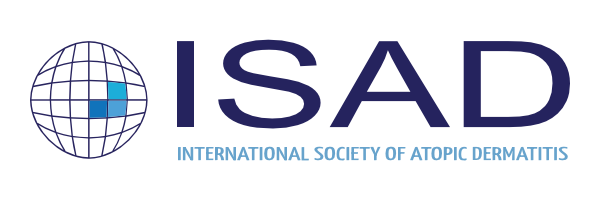What PubMed tell us about current trends in AD research?
Dear Colleagues, Dear Friends,
Since the approval of dupilumab for severe adult AD by the FDA in 2017, published AD research has been tremendously driven by RCTs and associated research concerning dupilumab and other new systemic/ topical therapies designed to control TH2 inflammation. The influence in our field of industry-led clinical research has been massive. A comparator in magnitude is the switch of metastatic melanoma research after approval of BRAF inhibitors in patients with the BRAF V600E mutation, less than a decade earlier. We have now several approved drugs available in privileged resource settings, and the pipeline is developing in several directions, including pediatrics, with the aim to reach efficacy levels obtained in psoriasis in around 15 years since the introduction of biologics in the 2000s. Qualitative research about burden of disease has followed a trajectory parallel to the introduction of new molecules, with also a massive funding of the industry and with the help of patient’s advocacies empowered by industry support. However, the information which is derived of such studies is at best limited and usually not new but is used as surrogate evidence in diseases with limited morbidity/mortality to influence health care payers. When looking at weekly 50-70 NCBI PubMed AD new entries, what are the remaining niches for independent or public-funded research? Basic science bench research remains active, with a few good papers emerging every week, looking mostly and immunology, pruritus, and microbiome-related issues, but this information is diluted among a plethora of epidemiological big data papers addressing mostly AD co-morbidities. The real value of these papers is frequently questionable since the diagnosis of AD and its severity are rarely available with enough certainty in the databases. In silico research about public omics repositories is more and more popular and drives many papers questioning for example causality or association in relation with AD. Mendelian randomization, a method using measured variation in genes to examine the causal effect of an exposure on an outcome, is very popular in China. The results of such studies are rarely confirmed. Southeast Asia remains the champion of mouse AD models (which are not all very relevant) and of in vitro studies to test new compounds, which a predilection for molecules coming from traditional medicine. Europe and the US were the initiators of methodological approaches within the evidence-based medicine paradigm and this trend is now universal. This type of papers includes systematic reviews, meta-analyses (but conducted sometimes on just more of a couple of published studies), guidelines… Of note, for severity scores, their proliferation has not been tamed by the international harmonization attempts, and current investigators are puzzled by the number of items to fill at visits. For outsiders of our field, it is not easy to understand the severity thresholds bands derived from so many scores!
What can the ISAD do to promote independent research and creativity in our field? Promoting fruitful exchanges with industry, patients, and academia at our meetings is a first goal to define a federative roadmap with less biases. A fine balance of independent academic vs industry research presentations at meetings, a more pragmatic public health/global health perspective, funding research fellowships around new research ideas, are some of the policy basics of our Society. We are of course open to discussion about new collaborations within those goals. The recent AD × One-Health symposium was a source of new ideas with our veterinary and epidemiology colleagues, and we hope that it will stimulate research in primary prevention, which seems to be the loser of the last decade of PubMed.
Best wishes,
Alain TAÏEB
President ISAD
#RAJKA2024 (ISAD Doha)

We are inviting abstract submissions
before July 15, 2024 (included):
➜ Check the guidelines / questions: callforabstract@laurentdequaeris
#StayInformed:
Explore the Latest in AD Research!
News on PubMed:
Dive into our curated selection of cutting-edge studies from PubMed, offering valuable insights into various aspects of Atopic Dermatitis:


